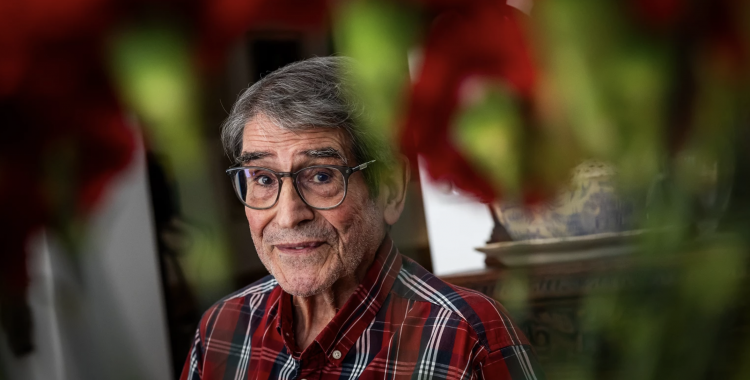In an interview with the Lusa agency, the founder of A Comuna and theater teacher, recalled this time of war and the days in prison for having said two poems on a radio in Luanda: one, the "Poema da Alienação", by the short story writer and poet Angolan nationalist António Jacinto (1924-1991), the other of the Portuguese poet Carlos Queirós Ribeiro (1907-1949).
One of them, the most controversial, "Poema da Alienação", was in the magazine of the Women's National Movement, an organization of the dictatorship supporting the Colonial War. In the last verses, he said: "But my poem is not fatalistic, my poem is a poem that already wants and already knows, my poem is me-white riding me-black riding through life".
After spending a long time in the bush and breaking his glasses to get out of there, furriel militiaman João Manuel da Mota Rodrigues got permission to go on a five-day getaway to Luanda. There he found an issue of the National Women's Movement magazine, one of the many sent to soldiers in the former colonies.
Among "Flamas e Plateias and other magazines, without really knowing what they were or what was written there", he found that publication and António Jacinto's poem.
Unaware of the poet and his nationalist inclination, João Mota, who "took care of the psychological action" and knew people at the Luanda radio station, then went to say the poem, which he paired with another by Carlos Queirós, the nephew "of Ofélia do Pessoa".
He left the radio and went to the cinema "all happy". But they quickly ordered him to report to the authorities. It was then that they arrested him and kept him in prison, he told Lusa. "I got away with it" because I had kept the magazine at the battalion, with the evidence that it was a choice made by the National Women's Movement.
Even so, they subjected him to interrogation. They wanted to know if you knew the poet, his work, his ideas.
João Mota said he was completely unaware of him. "I had gone from the metropolis, I didn't know anything about it. [...] I didn't know it, nor was I forced to know it, I'm from Portugal, I'm not from Angola", he said then, as reported to Lusa by the former furriel who knew the Casa dos Estudantes do Império, in Lisbon. To the authorities, however, he assured that he only knew Portuguese poets.
It was "two or three unpleasant days", he recalls. In early 1968, he returned to Portugal after two and a half years of war.
Even though he did animation for several companies, where sketches were performed or music was played, the memory of the troop comrades he saw die and those who were injured and maimed continued to mark his days. As well as the booms of weapons, so much so that, in Lisbon, there were many times when he threw himself to the ground, when he heard exhaust pipes.
"I wasn't the only one. It happened a lot in a gray Lisbon where everyone knew someone who had fought or was at war", he told Lusa.
João Mota still remembers the way he avoided talking about the war, "from outside". "And this continued after April 25th as well".
"There was no such mourning. It was very hard. When I came home from the war I realized that society was not made for us".
During the dictatorship, speaking was impossible due to the "lack of freedom", "enormous censorship", in all areas. However, it was also possible to "overcome censorship". Therefore, he stressed, there is always a possibility.
João Mota considers that "we still don't talk about before the 25th of April" and that "it's not interesting to talk about the people who fought" against the dictatorship. He thinks this happens, because to talk about them, you have to talk about the Communist Party.
Noting that he was not a communist, he highlighted that there were those who "fought hard" for freedom, people who were forgotten, just as they "forgot something which is the people".
Under the dictatorship, "the people wanted to be free and have an answer to hunger, to their problems", while intellectuals yearned "to speak, to write". Not being able to do it, "it was terrible, killing in any other way".
When remembering a life dedicated to the theater, João Mota also highlighted the participation of A Comuna in the post-25th of April dynamization campaigns, which allowed them to "get to know what was happening in the country".
Without liking politics or parties, he remembers that the company he founded with Carlos Paulo, among other actors, had people from all political and party backgrounds.
A self-confessed admirer of "people and not parties", João Mota says that there are those who consider him "a bit of an anarch". But "if being an anarch means being an example and having great rigor and discipline, then I'm an anarch", he admitted. "But anarchy is not nonsense. Be careful."







